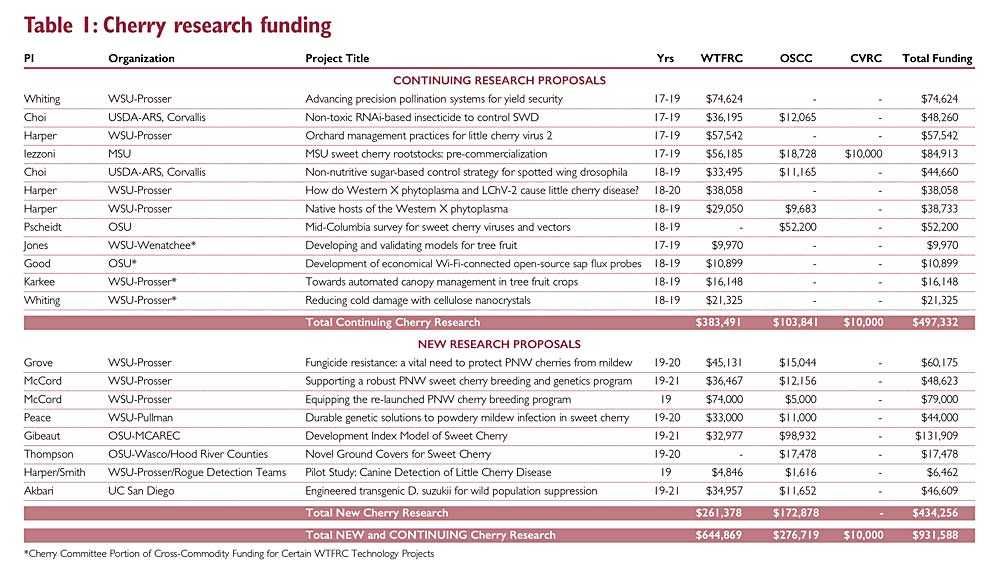
Continung and New Cherry Research Projects Funded by the Oregon Sweet Cherry Commission (OSCC), the Washington Tree Fruit Research Commission (WTFRC) and the Cherry Variety Rootstock Co-op (CVRC) for the 2019 Crop Year. (Source: Washington Tree Fruit Research Commission
Graphic by Jared Johnson/Good Fruit Grower)
For the 2019 season, Pacific Northwest cherry growers provided funding for 20 research projects totaling $931,588.
Of the total, $644,869 was provided by Washington Tree Fruit Research Commission (WTFRC) assessments, $276,719 came from Oregon Sweet Cherry Commission (OSCC) research assessments, and a small amount for rootstock development came from the Cherry Variety Rootstock Co-op (CVRC) from royalties on the sale of Regina cherry trees.
Given the broad similarity of production challenges across the region, this very positive coordinated effort between the states allows funding for a greater diversity of projects than each state would be able to do alone.
Table 1 lists the new and continuing research projects approved this year.
These projects focus on little cherry disease (the Western X and little cherry virus 2 complex), spotted winged drosophila management, the WSU sweet cherry breeding program, cherry powdery mildew control, mechanical cherry pollination, freeze damage prediction and protection, improved cherry rootstocks, orchard ground covers, and automated canopy management research.
Of note is the commitment to novel and/or high-risk research, exemplified by the projects related to canine detection of little cherry disease to augment laboratory detection of infected trees and the work on the development of transgenic spotted winged drosophila for large-scale population suppression.
These two efforts represent about 5 percent of the 2019 research project budget. The transgenic SWD project is also partially supported by the California Cherry Research Board.
The OSCC is led by Ryan Bond and supported by Eric Shrum and Dan Crouse as co-chairs of its research committee. Jim Doornink is the longtime chair of the Washington Tree Fruit Research Commission. Dena Ybarra is chair of WTFRC’s cherry committee. •
—by Mike Willett
Mike Willett is manager of the Washington Tree Fruit Research Commission.






Leave A Comment